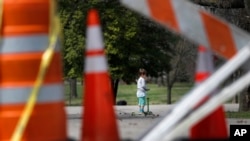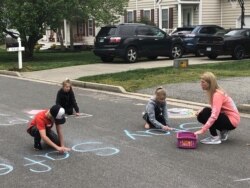The coronavirus has impacted children's lives on many levels. Schools and day care centers have closed throughout the world, causing disruptions in routines, and many children know that a virus is to blame.
With children are staying home, often on lockdown with their families, many are seeing and hearing the same information about the coronavirus as their parents do.
Dr. Kate Eshleman, a psychologist at Cleveland Clinic Children's Hospital, says it's important for parents to listen to their children's concerns.
"It's always important to start with the kids and find out where they're at," she said. "Ask them what they've heard, what they know, and what they think and feel about these things. It's always important to tell the truth in a developmentally appropriate way, and we want to provide the kids with reassurance."
Robert Franks, a child psychologist and president of Judge Baker Children's Center in Boston, agrees.
"You're not going to talk to a 5-year-old the same way you would talk to a teenager. But I think it's also really important that they understand how serious this is," he said.
Franks says it's important for parents and caretakers to remember that children take their cues from adults.
"They pick up on our anxiety. They pick up on our fear," he said. "If we're watching the news 24/7 in our house, they're going to see it, too. And they're going to see the way we react to it, as well as, you know, take cues from us in terms of how seriously we're taking social distancing."
Eshleman added that it's OK for children to sometimes watch the news with adults, "but if you're going to do that, do it together, so that you can ask questions and address any concerns."
Eshleman says if children ask you questions you don't know the answer to, it's OK to say so. She says you can explain that this is a new situation, and none of us have been in it before.







